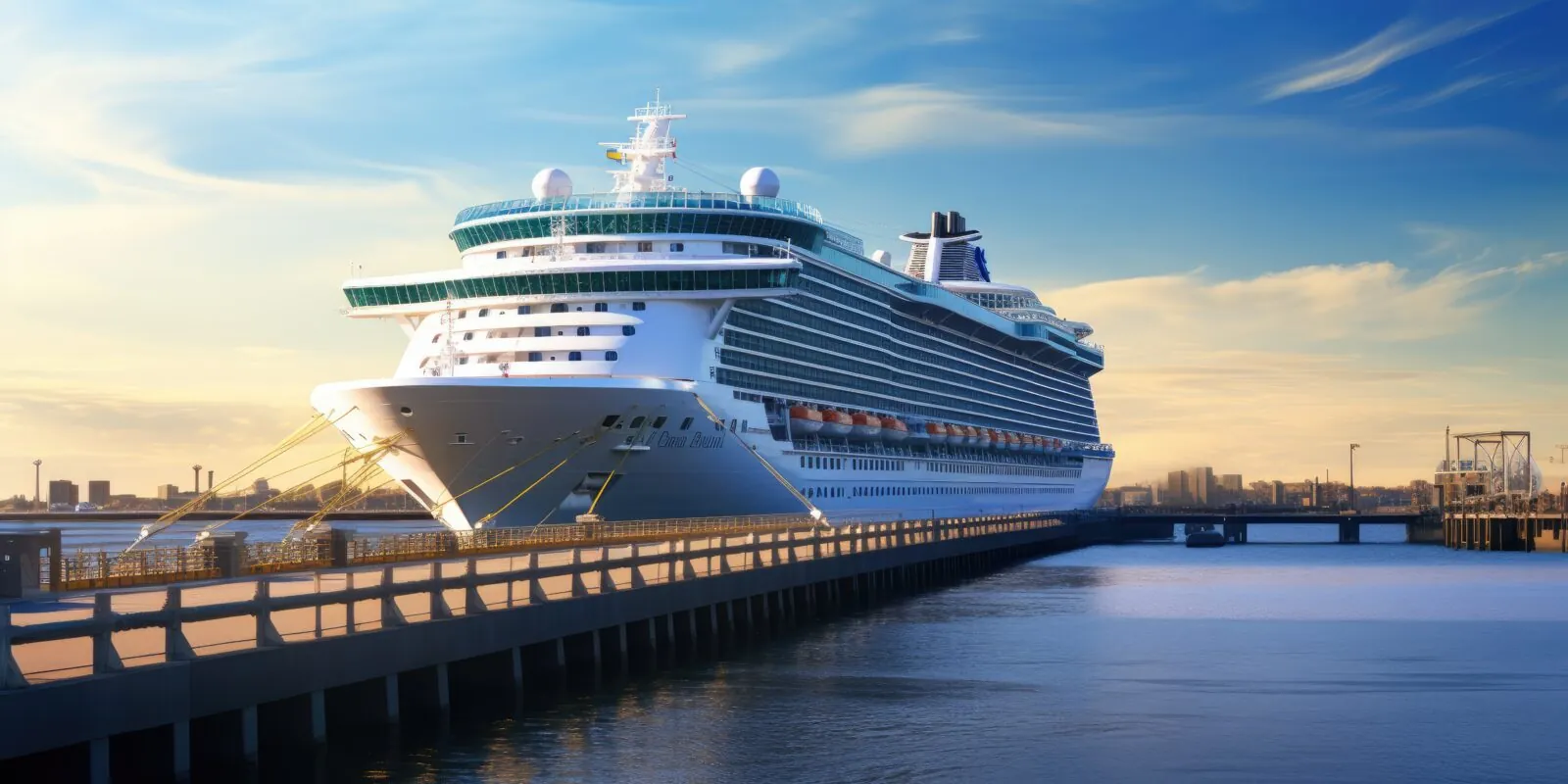What Are the Time Limits for Filing a Cruise Ship Injury Lawsuit?
Cruise vacations offer an escape from daily life, filled with relaxation, entertainment, and exotic destinations. However, accidents can happen onboard, leading to serious injuries that leave passengers wondering about their legal rights. If you’ve been injured on a cruise ship, one of the most critical things to understand is the statute of limitations—the deadline by which you must file a lawsuit.
Cruise ship injury lawsuits follow maritime law, which imposes unique time constraints. In most cases, passengers have just one year to file a claim, a significantly shorter deadline than standard personal injury cases on land. Failing to act within this timeframe could mean losing your right to seek compensation altogether.
This article will guide you through everything you need to know about cruise ship injury lawsuits, including the statute of limitations, legal timeframes, and what to do if you’ve been hurt while sailing.
Understanding Maritime Injury Claims & Passenger Rights
What Qualifies as a Maritime Injury?
Cruise ship injuries come in many forms, but to have a valid claim, you must prove that the cruise line was negligent in some way. Common examples include:
- Slips, trips, and falls: Cruise ships have wet decks, uneven surfaces, or poorly maintained walkways that can cause passengers to fall and suffer injuries such as broken bones, head trauma, or spinal injuries.
- Foodborne illnesses: Contaminated food, improper food handling, or lack of hygiene can result in severe cases of food poisoning, which may require medical attention.
- Medical malpractice: If a cruise ship’s onboard medical staff fails to provide proper care or misdiagnoses a serious condition, passengers may have grounds to file a lawsuit.
- Assaults and security issues: Cruise lines have a duty to provide a safe environment for passengers. If they fail to prevent or properly respond to an assault by crew members or other passengers, they may be held responsible.
- Shore excursion accidents: If a passenger is injured during a shore excursion booked directly through the cruise line, the company may be held liable for unsafe conditions or negligence.
Cruise Passenger Rights Under Maritime Law
Passengers aboard cruise ships have specific rights under admiralty and maritime law, which govern injuries at sea. Some of the key rights include:
- The right to a safe and hazard-free environment onboard.
- The right to file a legal claim if the cruise line’s negligence caused the injury.
- The right to seek compensation for medical expenses, lost wages, and pain and suffering.
- The right to review and dispute contractual limitations imposed by the cruise line.
Most cruise lines try to limit their liability by including strict legal deadlines in their passenger contracts. This makes understanding the statute of limitations crucial to protecting your rights.
How the Statute of Limitations Works for Cruise Ship Injury Lawsuits
What is the Statute of Limitations?
The statute of limitations is the time limit within which an injured party must file a lawsuit. If a claim is not filed before this deadline, the case is likely to be dismissed, and the injured party may lose the right to seek compensation.
Standard Deadline for Cruise Ship Injury Lawsuits
Most major cruise lines, including Carnival, Royal Caribbean, Norwegian, and MSC Cruises, require injured passengers to file a lawsuit within one year of the incident. This deadline is outlined in the ticket contract that passengers agree to when purchasing their cruise.
Why Do Cruise Lines Impose Shorter Deadlines?
Cruise companies use contract provisions to limit legal liability. Unlike regular personal injury cases, which typically have a statute of limitations ranging from two to four years, cruise lines often enforce a one-year deadline, making it essential for injured passengers to act quickly.
Are There Any Exceptions to the One-Year Deadline?
There are certain circumstances where passengers may be allowed additional time to file a lawsuit:
- Minors involved in accidents: If the injured party is under 18 years old, they may have a longer filing period depending on the jurisdiction.
- Fraud or misrepresentation: If the cruise line intentionally misleads a passenger about their rights, deadlines could be extended.
- Medical malpractice cases: Claims involving onboard medical staff may have different statutes of limitations depending on jurisdiction.
- International cruises: If a cruise stops in foreign ports, international maritime law could affect the filing deadline.
Legal Timeframes for Filing a Cruise Ship Injury Lawsuit
Filing Deadlines by Cruise Line
Each cruise line includes specific contractual limitations regarding lawsuits. These limitations require injured passengers to file their claims within a one-year period. Some examples include:
- Carnival Cruise Line: One-year filing deadline for injury claims.
- Royal Caribbean: One-year filing deadline, per contract terms.
- Norwegian Cruise Line: Passengers must file lawsuits within one year of the injury.
- MSC Cruises: Contractual limitation of one year for filing claims.
- Disney Cruise Line: One-year statute of limitations applies to injury lawsuits.
Since these deadlines are contractually binding, failing to file within this period could mean losing the right to sue.
How to File a Cruise Ship Injury Lawsuit Before the Deadline
- Gather Evidence Immediately
The first step in protecting your legal rights is collecting as much evidence as possible. This includes:
- Taking photographs and videos of the accident scene, showing hazardous conditions.
- Collecting witness statements from other passengers who saw the accident.
- Obtaining medical records from onboard doctors or external medical professionals.
- Review the Cruise Contract
Most major cruise lines include lawsuit filing deadlines in their terms and conditions. Carefully reviewing this section can clarify your specific deadline and other legal limitations.
- Consult a Maritime Injury Lawyer
Given the complexity of maritime law, hiring an experienced cruise injury attorney is critical. A lawyer can:
- Assess your claim’s validity.
- Ensure all necessary paperwork is filed within the deadline.
- Negotiate with the cruise line for a settlement.
- File the Lawsuit in the Correct Jurisdiction
Many cruise contracts require lawsuits to be filed in a specific location—often Florida, where most major cruise companies are based. Filing in the wrong jurisdiction could result in the case being dismissed.
Frequently Asked Questions About Cruise Ship Injury Lawsuits
What happens if I miss the one-year deadline to file a lawsuit?
If you fail to file your claim within the one-year deadline, your case will likely be dismissed, and you may lose the right to pursue compensation. Cruise lines strictly enforce these contractual time limits. However, in some cases, exceptions may apply, such as if the injured party is a minor or if there is evidence of fraud or misleading information from the cruise line. Consulting a maritime injury attorney can help determine if any exceptions apply to your case.
Are there different time limits for different types of cruise ship injuries?
Yes, while most personal injury claims on cruise ships follow the one-year deadline, certain cases may have different time constraints. Medical malpractice claims involving onboard doctors may have longer deadlines depending on the jurisdiction. Additionally, claims related to assaults, security failures, or defective onboard equipment may have varying statutes of limitations based on the circumstances of the incident and the applicable laws.
Do crew members have a longer deadline to file an injury claim?
Yes, unlike passengers, crew members are typically covered under the Jones Act, which provides additional protections and a longer statute of limitations. Under the Jones Act, injured crew members generally have three years from the date of the injury to file a lawsuit against their employer. This allows maritime workers more time to seek medical treatment, gather evidence, and consult legal professionals before initiating legal action.
Can I file a claim if the injury happened during a shore excursion?
It depends on the circumstances of the shore excursion. If the excursion was booked directly through the cruise line and the company failed to ensure passenger safety, they may be held liable for injuries sustained during the activity. However, if the excursion was booked through a third-party provider, the liability may fall on the excursion operator rather than the cruise line. In such cases, the legal process can be more complex, and the statute of limitations may vary depending on the country where the injury occurred.
What compensation can I recover in a cruise ship injury lawsuit?
If you successfully file a claim within the legal timeframe, you may be entitled to compensation for medical expenses, lost wages, pain and suffering, and other damages resulting from the injury. The amount of compensation depends on factors such as the severity of the injury, the degree of negligence by the cruise line, and the long-term impact on your health and livelihood. A maritime injury lawyer can assess your case and estimate the potential compensation you may receive.
Contact The Cruise Injury Law Firm Today
Cruise ship injuries can be serious, and your right to compensation depends on filing a lawsuit before the statute of limitations expires. Given the strict one-year deadline enforced by most cruise lines, time is of the essence.
If you were injured on a cruise, do not delay. Contact The Cruise Injury Law Firm today to ensure your legal rights are protected.






